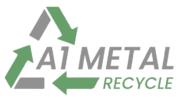Scrap metal recycling has become a popular and lucrative business in Australia. Whether you’re an individual clearing out old appliances or a business regularly handling metal waste, understanding the legal requirements for selling scrap is crucial. One of the most important aspects of scrap metal transactions is proper identification and documentation.
Due to increasing concerns about metal theft, Australian states and territories have introduced strict regulations to ensure the scrap metal trade is secure, traceable, and lawful. In this guide, we’ll explore what ID and documents you need to sell scrap metal in different parts of Australia and what else you should know before cashing in.
Why Is Identification Required When Selling Scrap Metal?
The scrap metal industry in Australia has, at times, been exploited by thieves looking to offload stolen goods like copper wiring, car parts, and even public infrastructure materials. As a result, the government has implemented laws requiring:
- Verified seller identification
- Record-keeping by scrap yards
- Restrictions on cash payments
These laws aim to prevent theft and help law enforcement trace the origin of suspicious materials.
National Overview: Common ID Requirements
While the rules can vary between states and territories, here’s what’s commonly required across most of Australia:
- A valid photo ID (typically a driver’s licence or passport)
- Proof of address (if not shown on the photo ID)
- Vehicle registration details (if you’re delivering scrap by car or truck)
- ABN (Australian Business Number) – if you’re selling as a business
Scrap metal dealers are legally required to keep records of all transactions, including copies or scans of your ID, the date and time of the sale, a description of the materials, and payment details.
State-by-State Breakdown
Let’s look at specific requirements for each Australian state and territory.
✅ New South Wales (NSW)
Under the Scrap Metal Industry Act 2016, sellers must:
- Provide a current photo ID (driver’s licence or proof of age card)
- Be recorded in the dealer’s logbook with time, date, material description, and vehicle registration
- Receive payment via cheque or electronic transfer only – cash payments are illegal
Dealers must report transactions to NSW Police via the Second Hand Dealer and Pawnbroker (SHDP) system.
✅ Victoria
The Second-Hand Dealers and Pawnbrokers Act 1989 regulates scrap sales.
- Sellers must show a photo ID
- Dealers must record:
- Seller’s name, address, and ID type
- A detailed description of the metal
- Time and date of transaction
- Method of payment
- Seller’s name, address, and ID type
- Cash is banned – payment must be made by cheque or EFT
Some councils may have additional licensing requirements for scrap dealers.
✅ Queensland
The Waste Reduction and Recycling Act 2011 (Scrap Metal Industry Amendment) enforces strict ID checks.
- Valid photo identification is required
- No cash payments – only bank transfer or cheque
- Dealers must keep detailed records for at least 5 years
- You may need to provide vehicle details
Scrap yards must also be licensed and comply with environmental and safety standards.
✅ Western Australia (WA)
The Criminal Code Amendment (Metal Theft) Act 2011 governs metal sales.
- A valid government-issued photo ID is mandatory
- Scrap dealers must keep transaction records for police inspection
- Cash payments are prohibited
- Some materials (like copper and vehicle parts) may attract extra scrutiny
WA Police may conduct regular inspections of dealer records.
✅ South Australia (SA)
The Second-Hand Vehicle Dealers Act 1995 and additional regulations apply.
- Sellers must present photo ID
- Dealers must log:
- Seller’s personal details
- Description of items
- Payment method (no cash)
- Seller’s personal details
- All payments must be made via electronic means
Certain councils may impose further requirements for large-scale recyclers.
✅ Tasmania
While not as heavily regulated as other states, Tasmania is moving toward greater oversight.
- Sellers should provide government-issued photo ID
- Many scrap yards voluntarily follow national standards: no cash, and detailed record-keeping
- Vehicle registration may be recorded
✅ Australian Capital Territory (ACT)
- Scrap yards will usually require a driver’s licence or passport
- Payment is made electronically
- Dealers maintain records for compliance inspections
The ACT government has proposed further legislation to curb illegal metal sales.
✅ Northern Territory (NT)
Scrap metal laws are looser than in other jurisdictions, but reputable yards still:
- Request photo identification
- Avoid paying in cash
- Record vehicle and material details
It’s best to check with the individual scrap dealer for their requirements.
What Counts as Valid ID?
Accepted forms of identification typically include:
- Australian Driver’s Licence
- Australian or foreign passport
- Proof of Age Card
- Photo Card (issued by state government)
- Firearms Licence (with photo)
The ID must be current and include your name, address, and photo.
Tips for Selling Scrap Metal Legally and Safely
- Call ahead – Ask the scrap yard what documents and ID they need.
- Bring original ID – Photocopies may not be accepted.
- Know what you’re selling – Be ready to describe the type and source of the scrap.
- Don’t expect cash – Australia is moving toward a cashless scrap metal industry.
- Use a licensed dealer – Always sell to scrap yards that are properly registered and comply with local laws.
Final Thoughts
Selling scrap metal in Australia can be a straightforward process if you’re prepared. The key is bringing proper identification, understanding your state’s regulations, and working with reputable scrap yards. By following these rules, you’re not only staying on the right side of the law, but also helping ensure the metal recycling industry remains safe and sustainable.
If you’re unsure about the exact requirements in your area, check your state government’s website or contact your local scrap metal dealer before you go.
Need to sell scrap metal?
Make sure you bring your ID and ask about payment methods in advance. Remember, no ID = no sale in most parts of Australia.



